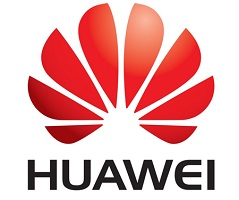NSA Spied On Huawei: Reports
The smarter way to stay on top of the multichannel video marketplace. Sign up below.
You are now subscribed
Your newsletter sign-up was successful

The National Security Agency established “back doors” that linked it to telecom networks managed and maintained by Huawei, the Chinese telecom vendor that has long been viewed as a national security threat by the U.S. government over national security concerns, according to reports by The New York Timesand Der Spiegel.
Those reports, which emerge as President Barack Obama is scheduled to meet with Chinese president Xi Jinping in the Hague on Monday, cite data from documents provided by former NSA contractor Edward Snowden. The reports also come to light about 18 months after the House Permanent Select Committee on Intelligence recommended that U.S. telecom providers not work with Huawei and fellow China-based supplier ZTE over concerns that they could be national security threats.
According to Der Spiegel, the NSA began to go after Huawei about five years ago. One goal of an operation code-named “Shotgiant,” was to uncover links between Huawei and the People’s Liberation Army, the Times reported, citing a document from 2010. The paper said the NSA plans also were to “exploit Huawei’s technology so that when the company sold equipment to other countries – including both allies and nations that avoid buying American products – the N.S.A. could roam through their computer and telephone networks to conduct surveillance, and if ordered by the president, offensive cyberoperations.”
“Many of our targets communicate over Huawei-produced products;” the NSA document said, according to the report, which notes that the NSA is tracking more than 20 Chinese hacking groups, with more than half tied to Chinese Army and Navy units. “We want to make sure that we know how to exploit these products.”
The reports claim that the NSA-led operation succeeded in gaining access to Huawei company servers in Shenzhen, enabling the agency to access company communications, including emails tied to Huawei president Ren Zhengfei.
An NSA spokeswoman told the NY Times that: “We do not give intelligence we collect to US companies to enhance their international competitiveness or increase their bottom line. Many countries cannot say the same.”
In a comment to the AP, another NSA official reiterated the agency’s stance that its actions are aimed only at "valid foreign intelligence targets in response to intelligence requirements."
The smarter way to stay on top of the multichannel video marketplace. Sign up below.
In a statement issued in response to the reports, Huawei said corporate networks “are under constant attack from different sources,” calling it the “status quo in today’s digital age.”
“Huawei disagrees with all activities that threaten the security of networks and is willing to work with all governments, industry stakeholders and customers, in an open and transparent manner, to jointly address the global challenge of network security,” the supplier continued. “The security and integrity of our corporate network and our products are our highest priorities. That is the reason why we have an end-to-end security assurance system and why we are continuously working to enhance that system. Like other enterprises, we continuously block, clean and reinforce our infrastructure from cyber threats.”
Huawei, which has tried with limited success to break into the U.S. cable industry, has sent been sending mixed signals to the U.S. market. Of recent note, Huawei CEO Ren Zhengfei told France’s Les Echos last December that the company was ready to exit the U.S. market.
But Huawei has not taken that step. "We remain committed to our customers, employees, investments, and operations and more than $1 billion in sales in the US, and we stand ready to deliver additional competition and innovative solutions as desired by customers and allowed by authorities,” a Huawei official said at the time.
Government distrust of Huawei, amplified by this 60 Minutes story about the supplier in the fall of 2012, has hindered the supplier's U.S. cable efforts. An industry source told Multichannel News last year (subscription required) that MSOs like Huawei’s pricing, but fear that the federal government will "come down on them like a ton of bricks” if they buy from the company.
Among recent cable-facing efforts, Huawei and ZTE, the other China-based vendor that has drawn similar attention from the U.S. government, have developed products EPON equipment that applies DOCSIS-style provisioning. Last June, Huawei and ZTE were among an initial batch of vendors that obtained qualification for equipment that adheres to the CableLabs specs for DOCSIS Provisioning of EPON (DPoE).
